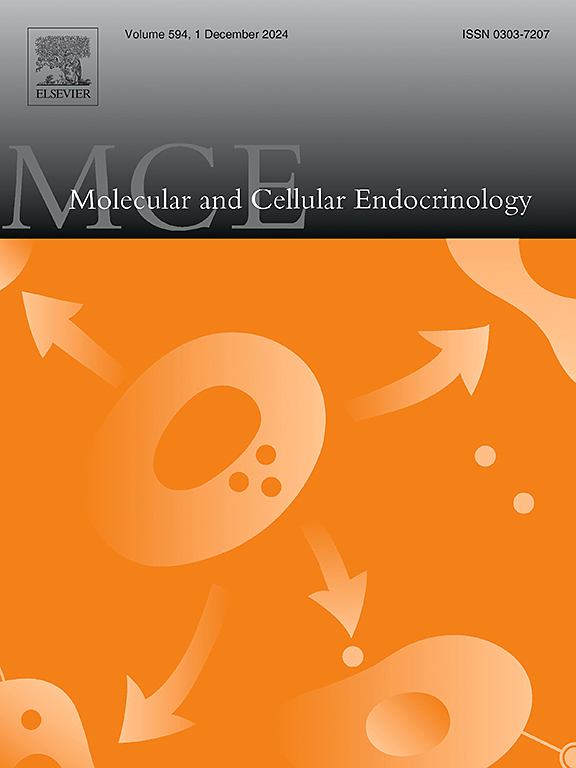MeCP2在子痫前期通过抑制SFRP4减轻炎症并调节T细胞表型。
IF 3.6
3区 医学
Q2 CELL BIOLOGY
引用次数: 0
摘要
子痫前期(PE)是一个主要的妊娠并发症的特点是异常的免疫反应。甲基CpG结合蛋白2 (MeCP2)是分泌卷曲相关蛋白4 (SFRP4)的潜在调节因子,MeCP2和SFRP4都与免疫稳态有关。本研究探讨了MeCP2/SFRP4在PE免疫细胞中的调节作用。建立子宫灌注压降低(RUPP)诱导大鼠PE模型和脂多糖(LPS)刺激HTR-8/SVneo细胞体外模型。采用lps攻毒HTR-8/SVneo细胞与T细胞共培养体系。PE中MeCP2表达降低,且与SFRP4水平呈负相关。MeCP2过表达抑制Th1/Th17分化,同时促进Th2/Treg表型,以及相关免疫细胞因子的调节。它还能促进菌落的形成、增殖、迁移和侵袭,同时减少共培养后的细胞凋亡。补充SFRP4逆转了MeCP2过表达对T细胞增殖和细胞因子释放的影响。总之,这些发现表明MeCP2通过抑制SFRP4调节T细胞表型和炎症反应,为PE的免疫治疗干预提供了潜在的途径。本文章由计算机程序翻译,如有差异,请以英文原文为准。
MeCP2 attenuates inflammation and regulates T cell phenotype via SFRP4 suppression in preeclampsia
Preeclampsia (PE) is a major pregnancy complication characterized by an aberrant immune response. Methyl CpG binding protein 2 (MeCP2) is a potential regulator of secreted frizzled-related protein 4 (SFRP4), and both MeCP2 and SFRP4 are implicated in immune homeostasis. This study investigated the regulatory role of MeCP2/SFRP4 in immune cells in PE. A rat model of PE induced by reduced uterine perfusion pressure (RUPP) and an in vitro model using lipopolysaccharide (LPS)-stimulated HTR-8/SVneo cells were established. A co-culture system of LPS-challenged HTR-8/SVneo cells and T cells was also employed. MeCP2 expression was reduced and inversely correlated with SFRP4 levels in PE. MeCP2 overexpression suppressed Th1/Th17 differentiation while promoting Th2/Treg phenotypes, along with modulation of associated immune cytokines. It also enhanced colony formation, proliferation, migration, and invasion, while reducing apoptosis following co-culture. SFRP4 supplementation reversed the effects of MeCP2 overexpression on T cell proliferation and cytokine release. Collectively, these findings suggest that MeCP2 regulates T cell phenotype and inflammatory responses by inhibiting SFRP4, providing potential avenues for immunotherapeutic intervention in PE.
求助全文
通过发布文献求助,成功后即可免费获取论文全文。
去求助
来源期刊

Molecular and Cellular Endocrinology
医学-内分泌学与代谢
CiteScore
9.00
自引率
2.40%
发文量
174
审稿时长
42 days
期刊介绍:
Molecular and Cellular Endocrinology was established in 1974 to meet the demand for integrated publication on all aspects related to the genetic and biochemical effects, synthesis and secretions of extracellular signals (hormones, neurotransmitters, etc.) and to the understanding of cellular regulatory mechanisms involved in hormonal control.
 求助内容:
求助内容: 应助结果提醒方式:
应助结果提醒方式:


